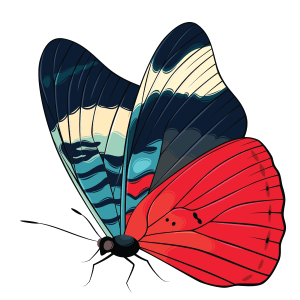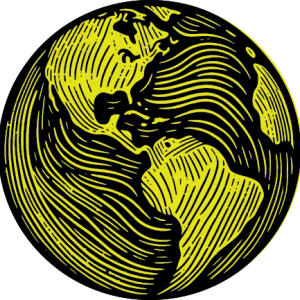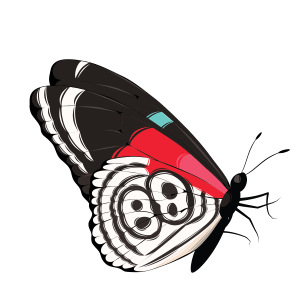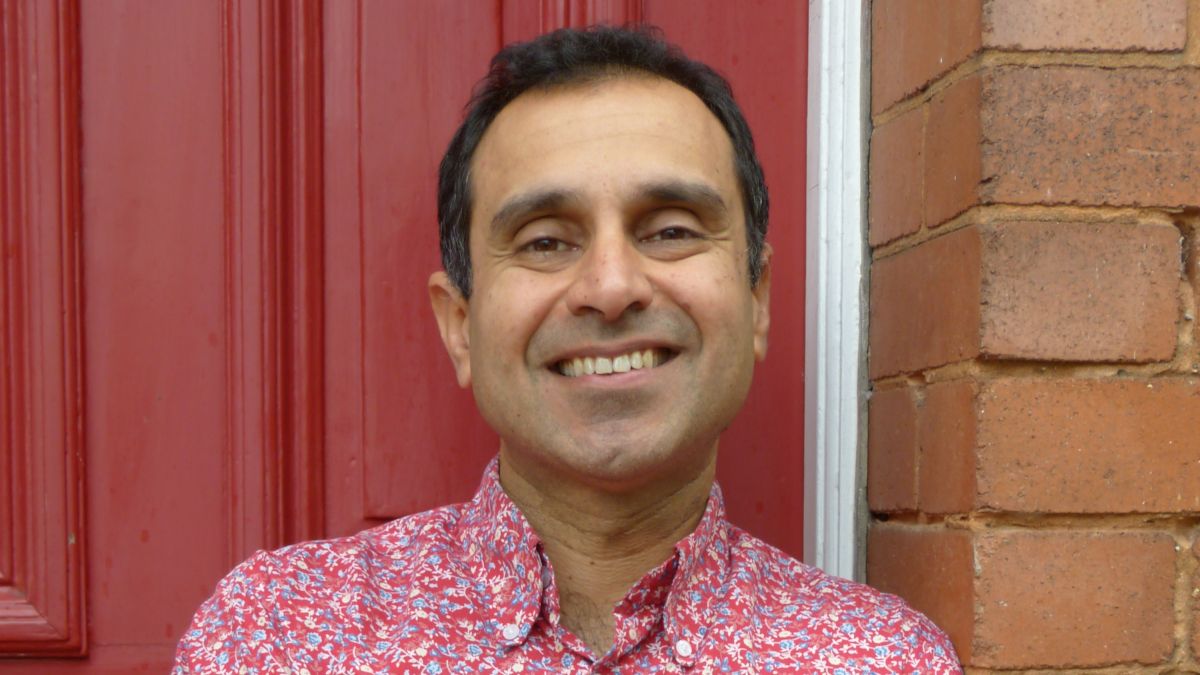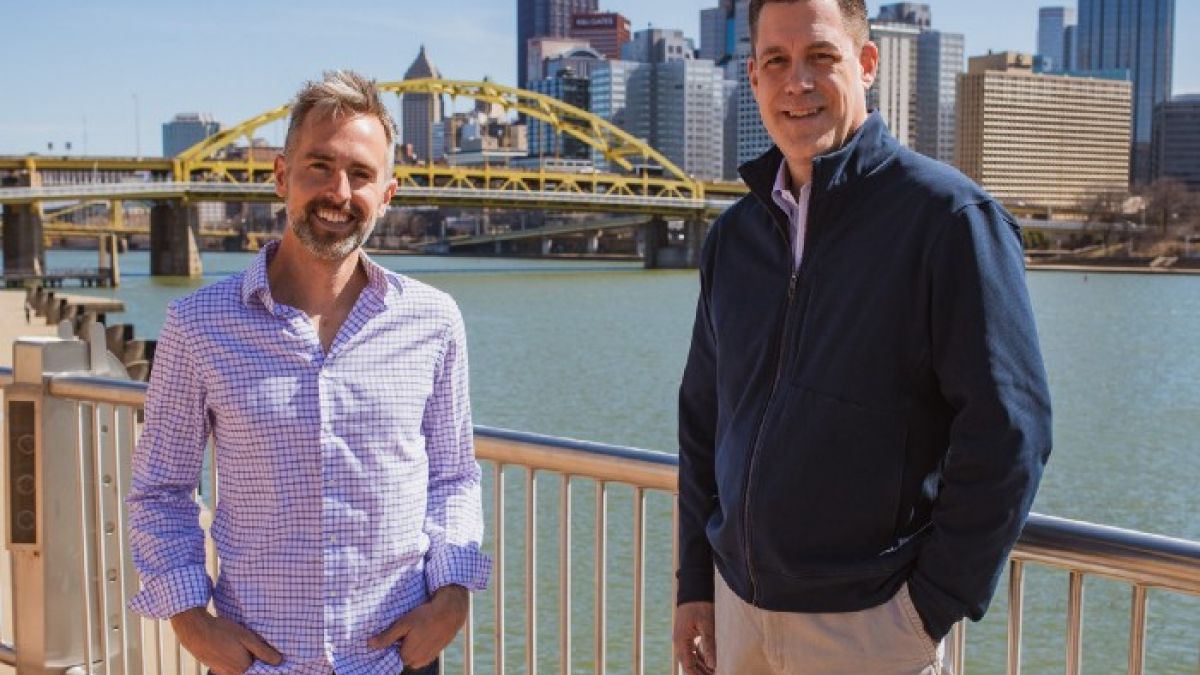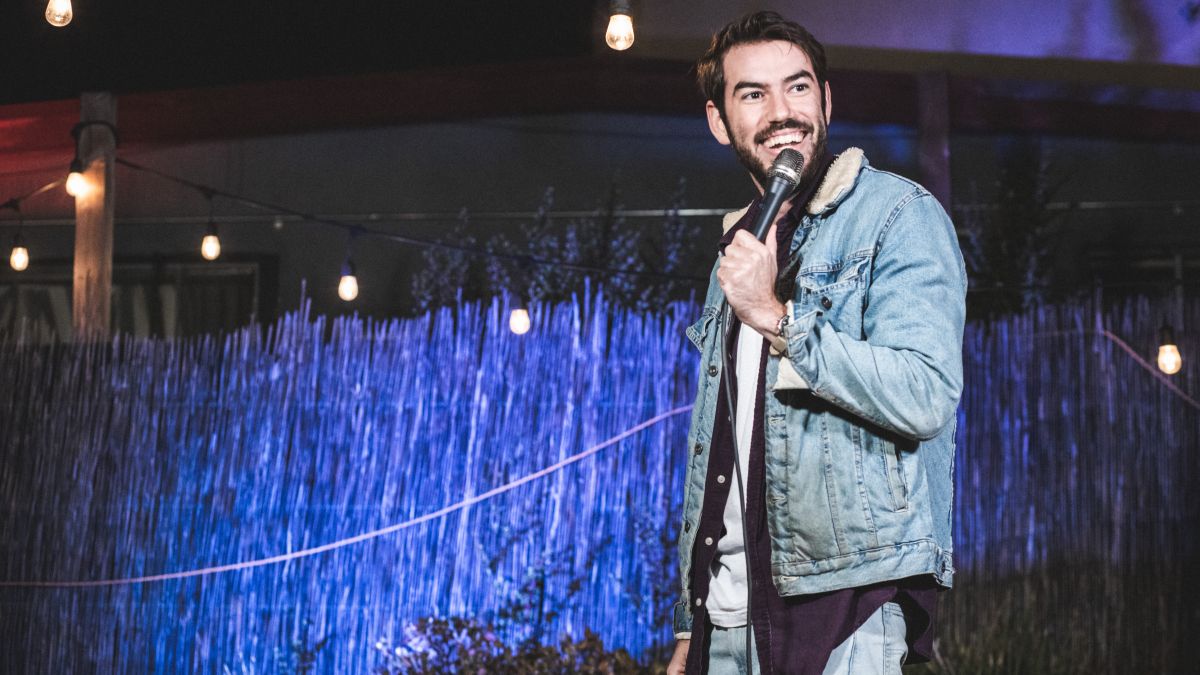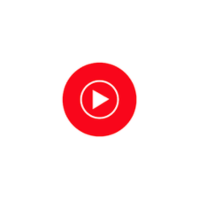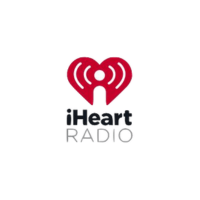December 2024
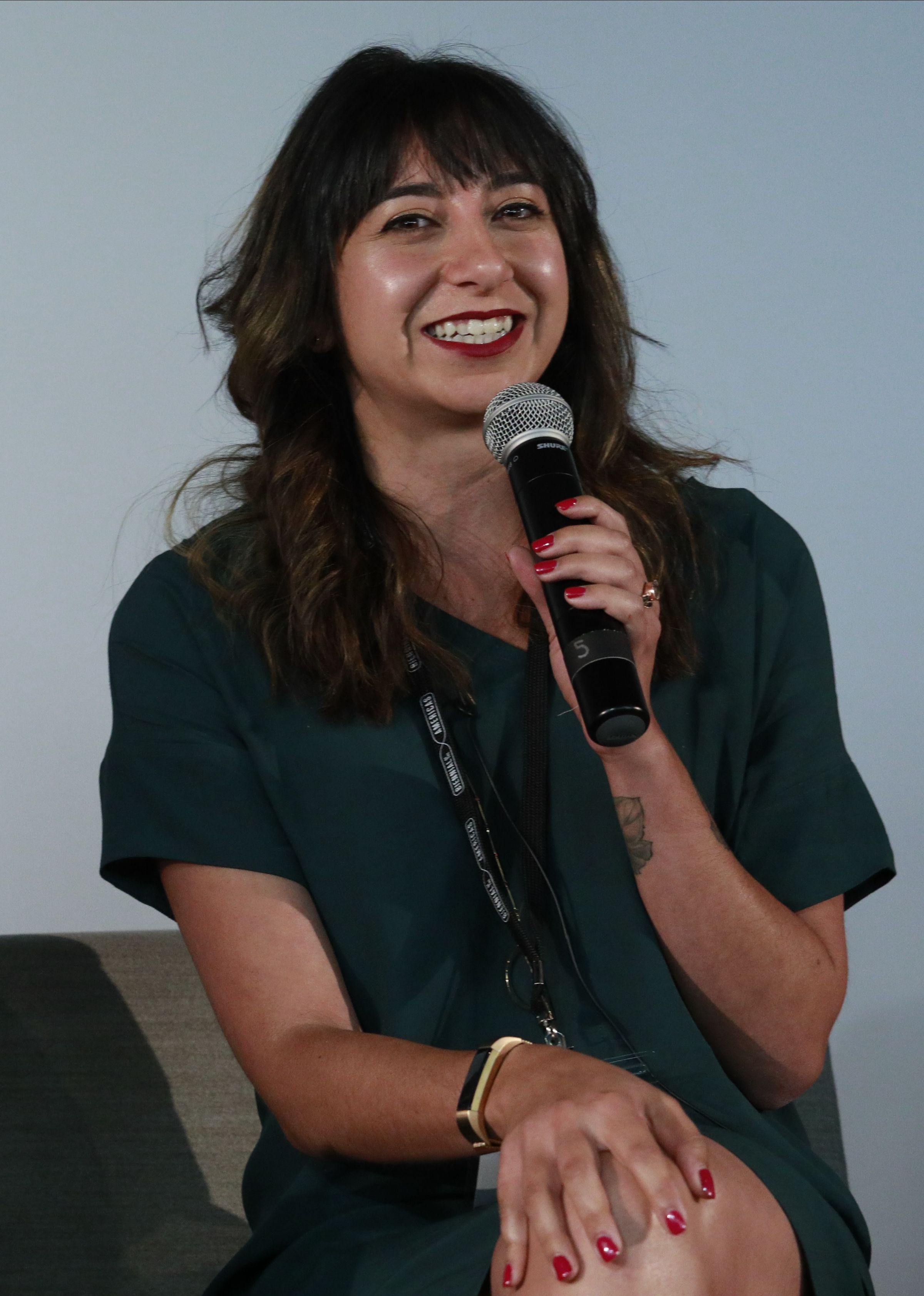
From the first moments of this episode, it is obvious that Kathayoon Khalil regards environmental education professionals in zoos and aquariums as integral pieces of effective education and environmental stewardship. These educators get to know the people they serve and the physical spaces provide unique opportunities for visitors of all ages and backgrounds to connect with nature, all of which in turn fosters community, advances equity and inclusion, and inspires a love for the natural world.
But for all of the positive experiences visitors gain, Kathayoon also acknowledges the deep, and often exhausting, challenges that come from this type of nonformal education. Listen to this week’s episode, in which Kathyoon highlights the growing importance of partnerships and collective efforts to address the very real needs nonprofits and educators face. She encourages a shift from competition to collaboration in pursuit of a better world, noting the impact (and importance) of the ever-evolving dynamics of the EE field, with newer generations driving conversations around equity, balance, and collaboration while questioning traditional systems accepted as the only path.
"We were thought of as being entitled. We were thought of as being not hard workers, but what we were really asking for was what was right and just."
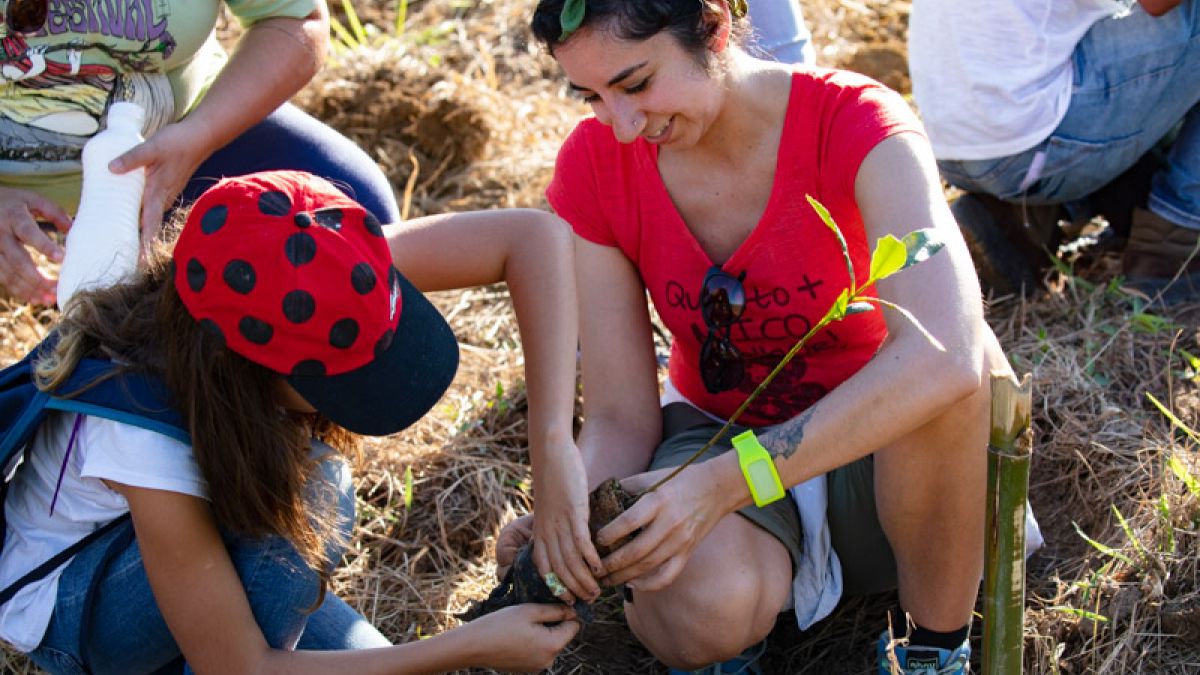
Kathayoon stresses the importance of maintaining balance in our lives, advocating against a "passion tax" that exploits dedication and instead nurtures respect for personal boundaries and diverse interests. Bringing the discussion full circle, Kathayoon connects the experience of zoo and aquarium visitors with more effective storytelling, which bridges gaps between humans and the natural world and inspires both empathy and responsibility for the environment.
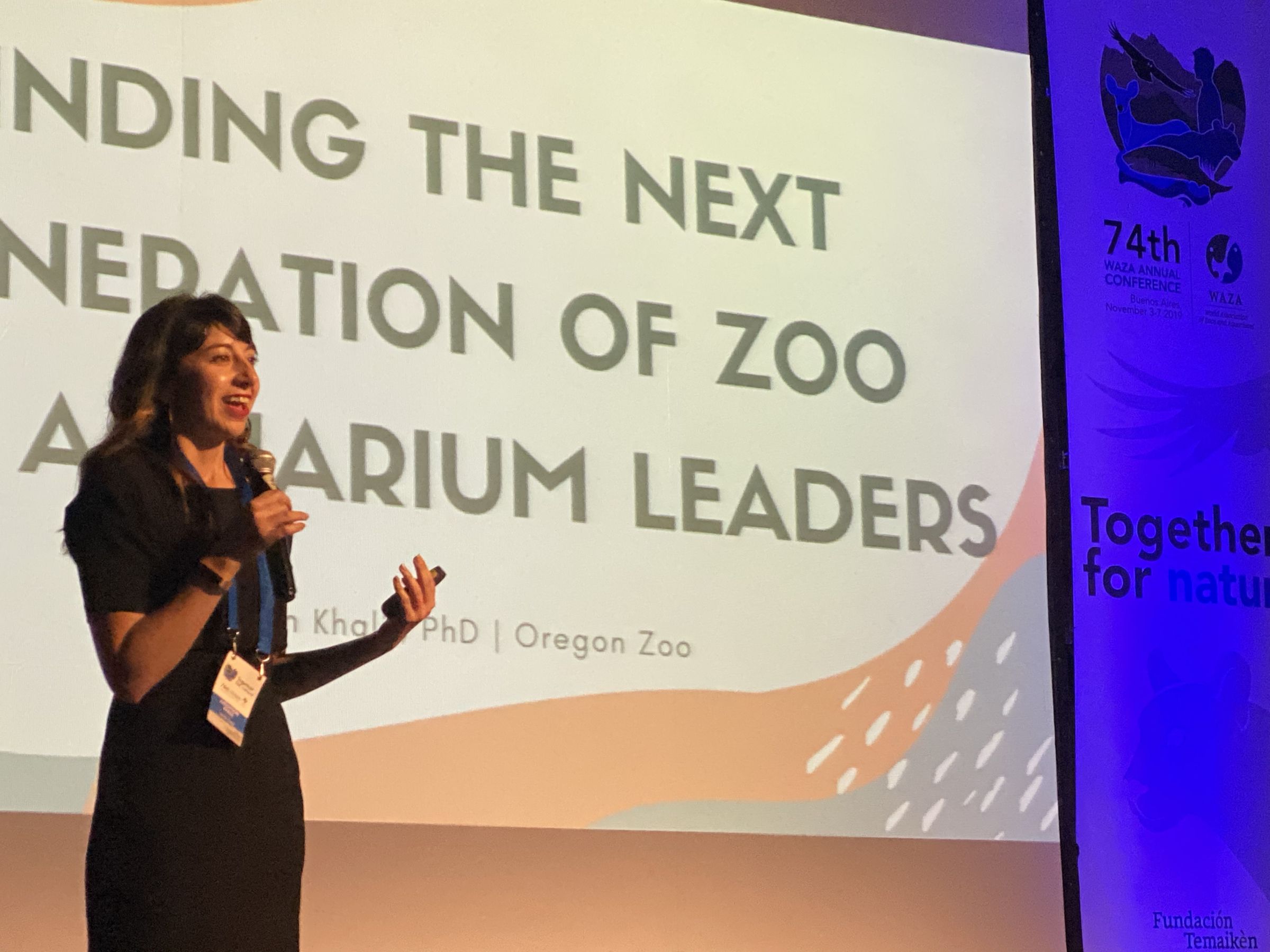
"What if we've been looking at this all wrong?
It is so safe to say that we are exceptional, that humans are the only creatures on this planet that feel, that grieve, that celebrate, that love, that lose. But what are we allowed to do to animals if we believe that to be true versus if we let ourselves believe that animals may feel all of the emotions that we feel, and more?
What does that give us the responsibility to do to shepherd and steward their care?"
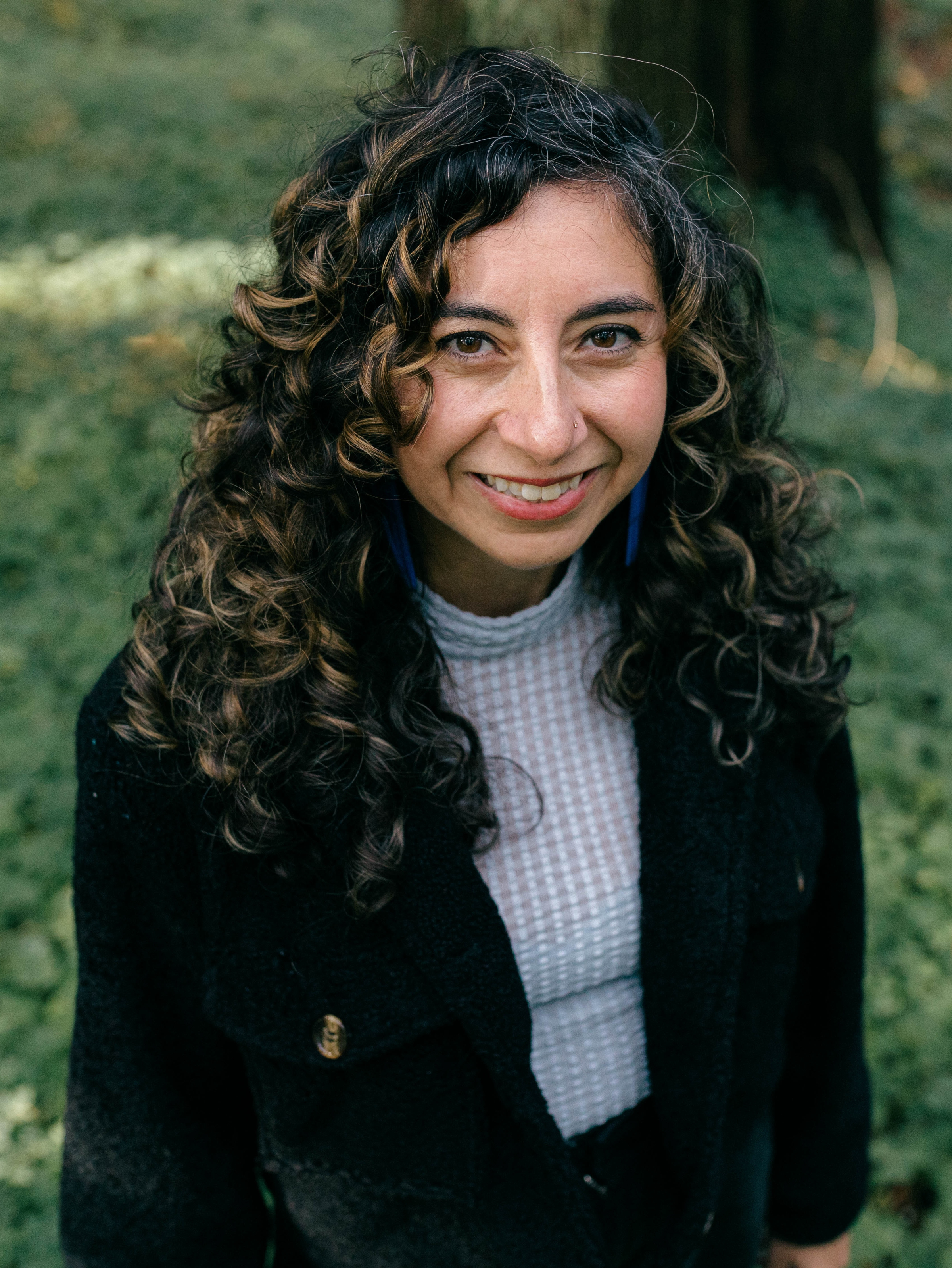
About the Guest Speaker: Kathayoon Khalil
Kathayoon Khalil, PhD is the Associate Vice President of Conservation Learning at the New England Aquarium. Prior to joining the New England Aquarium, Kathayoon was the Director of Engagement for Canopy Strategic Partners. She has also held positions as the Conservation Impact Manager for the Oregon Zoo, the Principal Evaluator for the Seattle Aquarium, and the Director of Evaluation for the Natural History Museum of Los Angeles County. She received her PhD in Learning Sciences and Technology Design from Stanford University, her Masters of Environmental Science from the Yale School of the Environment, and her Bachelors in Organismal Biology from Claremont McKenna College.
Dr. Kathayoon Khalil is a conservation psychologist and a social scientist. Additionally, Kathayoon collaborates with colleagues from around the world on research projects to advance our understanding of learning in zoos and aquariums. Kathayoon is also a researcher for "Fostering Empathy for Animals," a joint project among the Seattle Aquarium, the Woodland Park Zoo, and the Point Defiance Zoo and Aquarium. In this capacity, Kathayoon participates in publications and public speaking engagements, and conducts workshops on empathy development and measurement.
Kathayoon started her career as a teen volunteer at the Oregon Zoo and quickly developed a passion for wildlife and conservation. Through over a decade of work in zoo education, Kathayoon has implemented authentic approaches to evaluating visitor learning, including attitude and behavior changes that may have resulted from their visit. Kathayoon is an alumna of the Emerging Wildlife Conservation Leaders program as well as an instructor for Project Dragonfly at Miami University of Ohio and a member of the editorial board for Zoo Biology. She is also a commissioner with the Oregon Fish and Wildlife Commission. Outside of work, Kathayoon runs an art and jewelry business called Otter and Ink Designs. She enjoys yoga, running, gardening, and hanging out with her friends, family, and kitties, Catniss and Cuzco.
Learn more about Kathayoon's research, publications, and work in zoos and aquariums by visiting her website: https://kathayoonkhalil.wordpress.com/
Transcript
00:00:00:00 - 00:00:20:11
Carrie Albright, Host
Thanks for tuning in to The World We Want, the NAAEE podcast. Today's episode was recorded in person at NAAEE’s 53rd Annual Conference, in early November 2024.
00:00:28:05 - 00:00:53:07
Gerry Ellis, Host
Welcome to The World We Want, the NAAEE podcast. Hi. I'm your host, Gerry Ellis. So what is the world you want? I'd like to see a world where, as environmental educators, we recognize our own agency, our ability to create change and in turn challenge ourselves to rethink our roles.
00:00:53:09 - 00:01:13:23
Kathayoon Khalil, Guest
I think it is fueled by people realizing that their jobs are not their entire lives. And that even when you work in a field that you really care about. It is not fair to wage a passion tax on people. What does it mean to do what you love? And so how do we balance that and say, yes, I am a conservationist.
00:01:14:00 - 00:01:31:18
Kathayoon Khalil, Guest
That is my value. That is what I vote. That is what I feel. That is what I live. That is what I do. But it is not all of who I am and not punish people for having interests and lives outside of their jobs.
00:01:31:20 - 00:02:05:10
Gerry Ellis, Host
On this episode of The World We Want, we move beyond the everyday tasks we all face—the zoom meetings, the grant deadlines. Instead, we look inwards. We explore the challenges that face us, systems we work in, and how we think about our identity outside of work and how we tend to the very passions that drive us. Challenging what's in front of us is at the heart of the conversation with conservationists, psychologists, social scientist, and zoo professional, Dr. Kathayoon Khalil.
00:02:05:12 - 00:02:40:07
Gerry Ellis, Host
With an academic background in environmental science and organismal biology, Kathayoon is a leader in conservation, learning and thinking. Kathayoon is also a researcher on a unique project called Fostering Empathy for Animals, a collaboration amongst Washington states. Seattle Aquarium, the Woodland Park Zoo, and the Point Defiant Zoo and Aquarium. On The World We Want podcast, we talked to some of the great thinkers, creators, educators, and conservationists, as well as some of the newest voices driving change around the world.
00:02:40:09 - 00:03:19:08
Gerry Ellis, Host
And what do they share in common? Environmental education. One of the most powerful tools for creating a more just and sustainable world. It inspires, it enlightens, it influences attitudes, and most importantly, it drives us to become guardians of the planet, caretakers of our communities. And it leads us to action. If you're new to the podcast or to environmental education, you should know that The World We Want podcast is a production of NAAEE, the North American Association for Environmental Education, and now I'm delighted to welcome Dr. Kathayoon Khalil.
00:03:19:10 - 00:03:25:17
Gerry Ellis, Host
Hi, Kathayoon, and welcome to The World We Want to NAAEE podcast. It's exciting to have you here.
00:03:25:18 - 00:03:27:17
Kathayoon Khalil, Guest
It is so good to be here.
00:03:27:18 - 00:03:31:15
Gerry Ellis, Host
Little disclaimer, we are very good friends for a long time.
00:03:31:17 - 00:03:34:17
Kathayoon Khalil, Guest
Through this network, through NAAEE.
00:03:34:19 - 00:03:39:06
Gerry Ellis, Host
Actually it is. Yeah, yeah. We first met many years ago.
00:03:39:06 - 00:03:40:08
Kathayoon Khalil, Guest
Gosh I think Baltimore.
00:03:40:13 - 00:03:44:04
Gerry Ellis, Host
Or was it the Together Green.
00:03:44:06 - 00:03:45:06
Kathayoon Khalil, Guest
Who's to say.
00:03:45:06 - 00:03:58:09
Gerry Ellis, Host
I don't know, it’s one of the one of these amazing programs that Director Judy Braus has put together. She's really, an amazing human being at that. So. And we both love her to death, so. Absolutely. Okay, now we got all the fanfare.
00:03:58:10 - 00:03:59:22
Kathayoon Khalil, Guest
Yeah.
00:04:00:00 - 00:04:15:21
Gerry Ellis, Host
We'll get down to who you are and what you do and how you connect to not only this world we want, but you connect to environmental education because you come at it from kind of a little bit different angle than a lot of people do.
00:04:15:22 - 00:04:39:10
Kathayoon Khalil, Guest
Yeah, I think it's different when you zoom in really close, right. Which is interesting because if you talk to a person on the street, so I think what you're getting at is that I'm a zoo and aquarium educator. So I'm a conservation educator. I'm a conservation psychologist. And of course, that is nested within environmental education. If you talk to some random person, you pull on the street, that connection is very clear.
00:04:39:12 - 00:05:00:13
Kathayoon Khalil, Guest
But then when we come to the world of NAAEE, where we're allowed to be a little more granular, where we're allowed to zoom in a little bit more on our focal areas, then we start to see some of the differences, but also some of the uniqueness in of each of the fields. And so I was talking with some folks, because there are a few zoo educators here, but not a ton.
00:05:00:15 - 00:05:14:02
Kathayoon Khalil, Guest
And we often wonder why, why aren't there more of us in this space? And, that's something I'd like to tease out a little bit more, because we all like to think that our areas are so special and different, but really, what we're doing overlaps so strongly.
00:05:14:02 - 00:05:27:16
Gerry Ellis, Host
So this, here, being we're at the NAAEE national conference in Pittsburgh, which is a really great opportunity for you and a lot of your colleagues to get together and be able to look at your silos, but also talk about what you share in common.
00:05:27:18 - 00:06:04:18
Kathayoon Khalil, Guest
Absolutely. And I'm fortunate enough to be here co-chairing the Research Symposium section of NAAEE. So the Research Symposium, being a two-day symposium, that happens prior to the main conference that brings together about 190 to 200, you know, some zoo, environmental education researchers that are looking at all dimensions of from connectedness to nature to climate justice to urban gardens to zoos and aquariums and informal science learning facilities like that,
00:06:04:20 - 00:06:31:09
Kathayoon Khalil, Guest
Justice and community engagement, you know, you name it and just have conversations about work in progress. That's a really big focus of what we're doing is not everything being complete, but everything being open to input, open to new directions, open to new insights. And so I am fortunate, like I said, to be co-chairing that with Marijke Hecht, as my fellow co-chair.
00:06:31:11 - 00:06:35:04
Gerry Ellis, Host
How has that change, do you think, in the last decade, even.
00:06:35:06 - 00:07:09:05
Kathayoon Khalil, Guest
It's so interesting that you ask that. I've been coming to the Research Symposium since I was a graduate student, and every year is a little bit different depending on who's in the room and depending on who's leading the conversation. This year—and I don't have evidence to support this, quantitatively but I can say anecdotally—it seems like we have a lot more of a newer generation of researchers joining us, a lot more graduate students, undergraduate students, and Marijke and I both come from very, we call ourselves big feelers.
00:07:09:08 - 00:07:44:07
Kathayoon Khalil, Guest
We're very like, you know, social science, humanitarian-type people. Also unique is that I'm not a researcher right now. I'm a practitioner who seeks to and aims to translate research into practice, but I'm not actively doing my own research. And so that's a bit of a change for the Research Symposium as well, to have someone in this role who is not actively participating in generating new knowledge, but instead who is helping to shepherd the dissemination of that new knowledge to the people who are going to implement it on the ground.
00:07:44:09 - 00:08:00:05
Gerry Ellis, Host
Right. Well, I'm really curious if there's all these young people now that you're seeing how is that changing the field of environmental education in the sense that, I mean, are they looking at it through a different lens than you looked at it or
00:08:00:22 - 00:08:03:10
Gerry Ellis, Host
Folks, you know, 20 years in the field?
00:08:03:12 - 00:08:22:21
Kathayoon Khalil, Guest
I'll always, right. I think every generation brings with them a different set of values, a different outlook on the world. You know, but there's also so many fundamental many similarities. I talked to graduate students, and they're still wrestling with the same existential dread that I wrestled with as a graduate student. Do I want to go into academia?
00:08:22:21 - 00:08:38:21
Kathayoon Khalil, Guest
Do I want to go into practice? How do I make sure my research is relevant? How do I make sure I'm happy and balanced in the work that I do? Because this work is heavy and hard, and we want to make sure that we are caring for ourselves and each other as much as we are caring about the work that we do.
00:08:38:23 - 00:09:02:16
Kathayoon Khalil, Guest
And so I've been focusing a lot on those similarities this time around, and just listening to these students navigate starting in this field. And some of them are brand new. Some of them are third, fourth, fifth, sixth, seventh year doctoral students. But all of them are wondering how to position themselves within our broader community and reflecting on what it means to have a community especially
00:09:02:16 - 00:09:03:20
Kathayoon Khalil, Guest
In these times.
00:09:03:20 - 00:09:21:12
Gerry Ellis, Host
Do you think that's something that's different now versus when you first started in the field, or some of your mentors started in the field? This idea of what does it mean to me to sort of my personal health in this field, like my own mental health, because it is a hard field. I mean, there is a lot of heavy lifting.
00:09:21:18 - 00:09:25:10
Gerry Ellis, Host
There's a lot of joy that comes out of it. And so you have to come out with passion.
00:09:25:10 - 00:09:46:12
Kathayoon Khalil, Guest
But absolutely, I mean, that change has been I think, even in the last five years or so since Covid, right? I think it is very common for us to come into spaces and just act like everything is business as usual. It is very common to come into a space and if someone cries or shows undue emotion, then they're “hysterical.”
00:09:46:13 - 00:10:06:02
Kathayoon Khalil, Guest
My favorite word, right, because it comes from this idea of your uterus is out of control. And so you being a professional used to mean that you button it up and you tamp it down, and you're a good soldier and you proceed as though you are unflappable. And I think in the last five years have flapped us all.
00:10:06:04 - 00:10:37:15
Kathayoon Khalil, Guest
And so now it's no it's too exhausting to pretend like nothing shakes us anymore. And it is far more fruitful, far more empathetic, and far more productive to recognize the emotions that we have, but not let them control us or dictate the way that we show up for one another or show up in this work. And so, for example, this morning, you know, we got the news about the presidential election and Marijke
00:10:37:15 - 00:11:02:15
Kathayoon Khalil, Guest
And I knew we would have some information today. We didn't know if we would have all the information, but we carved out 15 minutes this morning and said, no matter what happens, we want to make sure everyone's together so we can set the tone for the day. And when I woke up this morning and found everything out, as a leader, it was—the first thing on my mind was, all right, so what is that tone?
00:11:02:17 - 00:11:42:09
Kathayoon Khalil, Guest
How do we want to set this space and set this day in the right direction, knowing that everyone is going to be feeling something different? And some of those things may be very bad. And so we got together in the room, we read a poem, we did a breathing exercise. I talked a little bit about my own personal journey and where I'm at today, and we closed by talking about how lucky we are to share this space together, and how fortunate we are to be in community with one another, and how this is an unrepeatable moment that we have here to be together, to talk about the things that we love, to talk about our
00:11:42:09 - 00:11:54:00
Kathayoon Khalil, Guest
passions to feed off each other's energy, and to just revel in the privilege to be amongst friends and colleagues, many of whom are the same people.
00:11:54:02 - 00:12:00:20
Gerry Ellis, Host
Yeah, it's interesting, just to go down that path a little bit further that, you know, a lot of people question like, why is the conference this week?
00:12:00:23 - 00:12:02:10
Kathayoon Khalil, Guest
Hahaha, yes.
00:12:02:12 - 00:12:23:03
Gerry Ellis, Host
But I hadn't quite thought about it like that. It is an interesting opportunity because regardless of the outcome, it is a chance for all these people to share in it. Yeah. You know, to be together around a group of people who share the same overall passion for the environment and education.
00:12:23:05 - 00:12:48:06
Kathayoon Khalil, Guest
And no matter how introverted, extroverted, whatever labels you want to put on it. Humans are social animals and we build societies around being with people who we enjoy being around. And I am never, I will never take for granted how lucky I am that both within that and within the AZA, the Association of Zoos and Aquariums, I have so many “work friends,” right.
00:12:48:06 - 00:13:09:19
Kathayoon Khalil, Guest
And that I use that with very heavy air quotes around it, because they're so much more than work friends. They are dear friends, they are at my wedding. They're the first people I call when I have good news. The first people I call when I have bad news, the people I look to for mentorship and help, and a drink and a conversation and, you know, I think we—it is very easy to take that for granted.
00:13:09:19 - 00:13:31:13
Kathayoon Khalil, Guest
And I look around at so many of my friends who work in other industries who don't have that right, who don't know anyone who works in their field in Mauritius, or who don't know a person that they can call in Louisiana and ask them for an answer to a question. And we are incredibly fortunate that this community has been built around creating connections amongst people, and not just amongst ideas.
00:13:31:16 - 00:14:05:16
Gerry Ellis, Host
I'd like to take that idea and move it to what you do in your daily life. That idea of building community, because it seems like one of the challenges in environmental education is building a community out of a random group of people who come to something. In your case, it's the New England Aquarium. So building a community out of these people who come with all of their random experiences and looking at the world, whether they're, you know, eight years old or they're 80 years old, looking through it with their lens.
00:14:05:18 - 00:14:15:08
Gerry Ellis, Host
And it seems like building community is like a really huge step if we're going to get them to embrace the passion and the love for nature.
00:14:15:08 - 00:14:48:14
Kathayoon Khalil, Guest
Absolutely. I think that's a motivator for me is the thought that nature, natural spaces, and for me, zoos and aquariums, can be convening areas nonpartisan, but mission driven places where people can come together with their friends, with their family, with strangers and have an enjoyable experience, have an enriching experience. And I don't know that we have fully leaned into that role yet in environmental education or in conservation education, because there is definitely still a business to be run.
00:14:48:14 - 00:15:30:20
Kathayoon Khalil, Guest
And I don't think that we fully leaned into that space in environmental or conservation education, because there is still, to some extent, a detachment that we feel from our audiences in our community. But if we can harness this opportunity to be a true convening space, a place where all people feel like they are welcome, like they belong, and like they enjoy and find joy in being there, then I think we can do so much more to advance our mission and to, you know, imbue in people this sense of, of love, appreciation for the natural world, because then the natural world becomes something social and not just something apart from what they experience in their everyday
00:15:30:20 - 00:15:31:13
Kathayoon Khalil, Guest
lives.
00:15:31:15 - 00:15:40:02
Gerry Ellis, Host
Part of the core of the question was, how do we get them to embrace that so that it is part of their everyday lives?
00:15:40:04 - 00:15:57:06
Kathayoon Khalil, Guest
It's a—it's not an answer—it's not a, it's not a question that has one answer, and it's not a question that has one answer for a particular place. Every place is going to have a different answer to that question. A zoo is going to have a different answer than an aquarium, than a nature center, than a museum, than a park, than a school garden.
00:15:57:11 - 00:16:25:16
Kathayoon Khalil, Guest
And each of those will be different depending on the community that you're in. And so the very first thing any of us should be doing is really getting to know the people that we want to engage and understanding. What is it about this specific, you know, geographic, political, racial, demographic, whatever community that they need, that they want, that they lack, that they're looking for, that brings them together and then seeing where we fit into that space.
00:16:25:16 - 00:16:47:07
Kathayoon Khalil, Guest
And I think it's okay to say from time to time that we are not the right space for some of these areas, but that's where partnerships comes in, right? We can say, hey, we're not the space for food security at the zoo right now. However, we have partners who do food security really, really well. So let's talk to them about how we can support the mission of what they do.
00:16:47:08 - 00:17:13:18
Kathayoon Khalil, Guest
And that requires a certain sense of egoless collaboration, which is very, very challenging when money is involved and we live in a capitalist society and blah blah, blah, blah blah, but that, I think is what is necessary, is being able to see where we can excel and being able to see where we can cede our control and power to another group and just say, how can we support you in doing this work versus how can we get credit?
00:17:13:20 - 00:17:45:11
Gerry Ellis, Host
There seems to be a growing theme, is this community within. It seems as you were saying it there because of the competition for funding, which is always going to be there it seems and sometimes the competition for audience, you know, attention and I guess in some communities. But there seems to be a growing sense within the community of environmental education, conservation, education, that partnerships are going to be critical moving forward.
00:17:45:11 - 00:18:06:21
Gerry Ellis, Host
We, and I think it strengthens, it just feels to me as though it's strengthening the field because it is it implies to the listener out there that the environment is bigger than one thing. It is bigger than just going and learning about starfish at the aquarium.
00:18:06:23 - 00:18:26:06
Kathayoon Khalil, Guest
Absolutely. And I think also I want to go back to something. You said that competition for funding will always be there. And whenever someone says we'll always be there or always will be that way, it immediately kicks in the rebellious, you know, detractor part of my brain, that's like, well, why? Why does it always have to be that way?
00:18:26:06 - 00:18:55:08
Kathayoon Khalil, Guest
Defiant, the defiant part of me. And I think we're seeing even now, more and more grants going to groups of organizations who are coming together around a common cause and saying, hey, it's not just this one science center applying for this grant, it's a university and a science center and a zoo and an aquarium. And we're all looking at this common question, and it's not every grant, but I think we have an opportunity to train funders to look for collaboration, and powerful collaboration,
00:18:55:09 - 00:19:04:14
Kathayoon Khalil, Guest
Collaboration that works as a model to aspire to when looking for what programs and projects to fund.
00:19:04:19 - 00:19:19:17
Gerry Ellis, Host
It's been a growing trend, for at least the last 15 years, I think, is that funders, especially large funders, if we're talking millions of dollars in a grant, they want multiple players in it.
00:19:19:19 - 00:19:44:02
Kathayoon Khalil, Guest
Absolutely. And these changes take time. Right. And it was the way that it was because that was easiest. And it worked under the circumstances that we had and someone was benefiting from it. And so to change some of those systems, we really have to change the structure of how we think about who benefits and who doesn't and and how we want to direct ourselves into a new reality.
00:19:44:02 - 00:19:44:21
Kathayoon Khalil, Guest
But it's not impossible.
00:19:45:01 - 00:19:59:19
Gerry Ellis, Host
Do you see younger, you were talking about younger people in the symposium. Do you see younger people in the field coming in with sort of like that's, Yes, of course. How we're going to do it, it's going to be partners. Or is there still a holdover from the way they've been taught?
00:19:59:21 - 00:20:23:09
Kathayoon Khalil, Guest
That's a good question. I think for me, what I see is that the generations coming in are just like our generation did, challenging the way that they are seeing all of this play out, right. So my generation, I'm a millennial, my generation came in and kicked and screamed about a lot of injustices that we saw. And, and we brought forth a lot of, you know, the DEI movements.
00:20:23:09 - 00:20:42:02
Kathayoon Khalil, Guest
And I'm not, I don't know the, I don't have enough authority to speak on the exact changes that happened because of the millennial generation. However, I will say that we did things a bit differently. We were thought of as being entitled. We were thought of as being not hard workers, but what we were really asking for was what was right and just.
00:20:42:04 - 00:21:02:05
Kathayoon Khalil, Guest
And we were asking for people to look at some of these systems that were unjust, that took advantage of unpaid labor, that took advantage of you know, privilege and use that to create gates that kept a lot of people out. And I think the new generations coming up now are doing that even more. And the ones who come after that will do it even more.
00:21:02:05 - 00:21:22:10
Kathayoon Khalil, Guest
You know, we stand on the shoulders of the generations that come before us, and each one pushes just a little bit more and says, yes, that's all fine and good, but we haven't even touched this over here. So why are we still doing XYZ? Like, why are we still offering, you know, part time jobs or jobs without health insurance?
00:21:22:10 - 00:21:46:19
Kathayoon Khalil, Guest
You know, these are some of the challenging questions that are getting asked that don't have easy answers, but they deserve to be asked and they deserve to have a conversation so we can actually decide if we want to continue along the same paths that we've continued before. At least we're doing it on purpose, and at least we're doing it because we decided to do it, not just because the wheels were already in motion and we got caught up in the gears.
00:21:46:20 - 00:21:58:03
Gerry Ellis, Host
How do you think that affects the way they, I’ll use “do their job?” I it's funny because I don't think of people in this field as doing the job.
00:21:58:03 - 00:21:58:19
Kathayoon Khalil, Guest
Yeah, we're doing.
00:21:58:19 - 00:22:00:11
Gerry Ellis, Host
We're doing our love. We're doing our.
00:22:00:11 - 00:22:01:09
Kathayoon Khalil, Guest
Passion.
00:22:01:11 - 00:22:02:23
Gerry Ellis, Host
Yeah. But how do they approach the work.
00:22:02:23 - 00:22:36:03
Kathayoon Khalil, Guest
So much more balanced I think, right. I think there is a growing trend in movement, and I'm not going to attribute it all to whatever generation you want to, you know, name. I think it is fueled by people realizing that their jobs are not their entire lives, and that even when you work in a field that you really care about, it is not fair to wage a passion tax on people, which I use that term to mean taking advantage of someone's passion to pay them last or to offer them, a a job that they have to work 80 hours a week.
00:22:36:03 - 00:23:02:05
Kathayoon Khalil, Guest
Otherwise they can't advance or they can't do better. And so I think we're getting a lot of really challenging, interesting, important conversations around what does it mean to do what you love and what are we allowed to ask of people because they are doing something that that vibes with their values or their mission or their spirit, versus having a job that you clock in and out of every single day.
00:23:02:07 - 00:23:23:05
Kathayoon Khalil, Guest
And this is this. You know, I think this goes back to what we were just talking about, about how it weighs on you, that the reality is that people who work in mission driven fields, who really care about what happens at the end of the day, we know we're not going to solve these problems in our lifetime. And that's incredibly freeing and also incredibly disheartening.
00:23:23:07 - 00:23:50:11
Kathayoon Khalil, Guest
And so how do we balance that and say, yes, I am a conservationist. That is my value. That is what I vote. That is what I feel. That is what I live. That is what I do. But it is not all of who I am. And not punish people for having interests and lives outside of their jobs, and for bringing those interests, bringing those lives, bringing those feelings, bringing those personalities into the work that they do.
00:23:50:12 - 00:23:57:12
Kathayoon Khalil, Guest
How can we see that as a benefit, as something that makes us all richer rather than as a distraction.
00:23:57:14 - 00:24:01:02
Gerry Ellis, Host
How do we bring those back in to the work we do? Yeah.
00:24:01:04 - 00:24:20:09
Kathayoon Khalil, Guest
I think we make space for it. And this is what's really interesting to me is it's so easy to say these words, but it's so uncomfortable to actually do it. If you were going to ask people to be vulnerable, you have to tend to the impact of that vulnerability. That vulnerability may look like them. Having a crying breakdown because of something you did or said.
00:24:20:11 - 00:24:41:04
Kathayoon Khalil, Guest
And that is really hard because you want to shut it down and be defensive and say, well, I didn't mean for it to be that way. I told you to take the day off, but that's not tending to the impacts of our actions. And so the work for each individual is going to be how where are you willing to make space in your life for things that are not your job?
00:24:41:06 - 00:24:59:03
Kathayoon Khalil, Guest
And how are you going to communicate those boundaries? And how are you going to accept those boundaries from others, especially if you're someone who manages people or works alongside others, which I assume a lot of people work alongside others. But just because you do it a certain way doesn't mean other people are going to do it exactly that same way.
00:24:59:03 - 00:25:24:21
Kathayoon Khalil, Guest
And so, you know, we talk about work life balance, but it really is about being in balance with yourself and knowing that looks different for everybody. And some people are going to choose to have families with children, and some people are going to choose to have families without children, and both of those are very valid. And someone without children should not be expected to work many more hours than someone who has children, and vice versa, someone who has a side—
00:25:24:22 - 00:25:49:14
Kathayoon Khalil, Guest
I have a side hustle as an artist because I need to sign off at the end of my day and do something that is completely unrelated to conservation. So I write, I make jewelry, I do paintings, I create accessories, and on the weekends I sell those at markets. And it's a whole different part of my life because I'm not a conservationist, I'm not a PhD, I'm not, you know, a senior, you know, and a leadership person in my organization.
00:25:49:14 - 00:26:18:18
Kathayoon Khalil, Guest
I'm just a vendor alongside all these other vendors, trying to get you to appreciate the art that I made. And it is easy to let those things go by the wayside and say, oh, I don't actually have time for art today. I need to finish these emails. It is much harder to say the emails will still be there tomorrow if I don't do the art today, even if I don't get paid for it, a little part of me will have violated what I, you know, my own boundary, which is that I want to make sure that I preserve some time for this other part of myself.
00:26:18:20 - 00:26:34:12
Gerry Ellis, Host
Do you hear these conversations in something like the science symposium where people are pulling over? Is there's a space given to have those kind of conversations, like you're sitting at a round table of other people. So everybody is going to talk about for the next 15 minutes what they do not related.
00:26:34:14 - 00:26:51:19
Kathayoon Khalil, Guest
I would love that. We do. I mean, I think as friends we get together and talk about our partners and our friends, and we show pictures of our cats and our dogs and our nieces and nephews and our children, and then, you know, whatever. But it is really interesting. I'll keep using my own lived experience as an example, because that's the only thing I'm an authority on.
00:26:51:21 - 00:27:15:00
Kathayoon Khalil, Guest
But when I say, you know, oh yeah, I made these earrings, I run a side business. I get, you know, 50% of people being like, cool, where can I get your stuff? And 50% of people being like, gosh, is there anything you don't do? Which is such an interesting comment because I know that intent is very kind. And also there often feels like there's this thread of “you do too much,” right?
00:27:15:00 - 00:27:45:15
Kathayoon Khalil, Guest
Or how do you make time for these other things when this work is, you know, so all consuming. And what I want to say to them is you too can make time for whatever you want to make time for. I only sell the jewelry because I can't afford to have all of this stuff in my house. But we need to be, I think, more gracious with one another to have these multiplicities within our personalities and have these different hobbies and show interest and not feel, we are not—
00:27:45:15 - 00:28:11:12
Kathayoon Khalil, Guest
I'm not inadequate because I don't have children. I am not inadequate because I don't, you know, trying to think of hobbies that my friends have that I don't participate in. There's a lot of them, but we are not inadequate because we don't do what other people do. The only person you have to account for is yourself. If it makes you happy to work in conservation every waking hour of your day, more power to you.
00:28:11:14 - 00:28:22:15
Kathayoon Khalil, Guest
But I would wager a guess and say that living a more a balanced life that serves the many different parts of your personality and your interests may help you be a better conservationist in the future.
00:28:22:19 - 00:28:44:20
Gerry Ellis, Host
I think it could only help be a better conservationist, because as you, as these other people come in the door of your life, and especially if you're, if we're talking about the public, you're going to relate to their lives. And that relation is going to allow you to talk about the world, talk about the planet in a way that's going to connect to them.
00:28:44:22 - 00:29:07:21
Kathayoon Khalil, Guest
It's so funny. You never know what's going to connect people. You know, I coxed crew teams for ten years, and it was a huge part of my life. And I love rowing and I love crew and I'm very happy to not do it anymore. It was very stressful and it was a different time and place. But I'll mention crew to somebody and they're like, oh my God, you rowed crew, I rowed crew and then we'll have a whole conversation that has nothing to do with conservation, but we can get back there.
00:29:07:23 - 00:29:30:06
Kathayoon Khalil, Guest
But we've created a relationship or even just an understanding that, hey, I like you know, what it feels like to wake up in the morning and hear the scrape of blades on water. I like, you know, what it feels like to put in a power ten. You know, like all the parts of that subculture just start to align and they may not walk away being a conservationist, but they walk away knowing that someone like them is a conservationist.
00:29:30:06 - 00:29:32:02
Kathayoon Khalil, Guest
And I think that's pretty profound.
00:29:32:04 - 00:29:40:01
Gerry Ellis, Host
I remember a story you, you told me once before about, an orca in Puget Sound and.
00:29:40:01 - 00:29:40:16
Kathayoon Khalil, Guest
Tahlequah.
00:29:40:20 - 00:29:51:08
Gerry Ellis, Host
And the death of a baby, and I think that resonates. And I'd love you to tell that story, because I think it resonates in that it's not about killer whales. It's not about orcas. It's, go ahead.
00:29:51:08 - 00:30:17:22
Kathayoon Khalil, Guest
It's about it's about people. It's about the lived experience. It's about being alive on planet. So this was oh my gosh, I don't know what year this was. I gave the talk about Tahlequah at the Seattle Aquarium. Must have been 2017 or 18 something in that realm, maybe 19. But around that time, in the late teens of the 2000s, there was an orca in Puget Sound named Tahlequah.
00:30:18:02 - 00:30:47:02
Kathayoon Khalil, Guest
Tahlequah had a calf and the calf did not survive. And Tahlequah carried the body of her calf for I believe it was 17 days on her back. And my goodness gracious, you can—It is so hard not to see that as an act of mourning and grief, because if you strip away all of the, you know, emotion from it, which I would not recommend doing, I would recommend leaning into those emotions.
00:30:47:04 - 00:31:19:16
Kathayoon Khalil, Guest
That is an enormous biological pull on an animal to carry around a calf's corpse for over two weeks. And people really connected with this story, right? Especially people who had experienced loss, especially grieving mothers, grieving fathers, grieving, you know, parents who had lost children, people who loved animals, people who love kids, people who love people. All I think, had this moment where they thought, oh my God, what if animals are like us?
00:31:19:18 - 00:31:50:20
Kathayoon Khalil, Guest
What if we've been looking at this all wrong because it is so safe to say that we are exceptional, that humans are the only creatures on this planet that feel, that grieve, that celebrate, that love, that lose. But what are we allowed to do to animals if we believe that to be true, versus if we let ourselves believe that animals may feel all of the emotions that we feel, and more.
00:31:50:22 - 00:31:56:15
Kathayoon Khalil, Guest
What does that give us the responsibility to do to shepherd and steward their care?
00:31:56:17 - 00:32:14:00
Gerry Ellis, Host
On the heels of that, we love to end this with what is the world you want? It's also, I like that to be a two part question what is a world you want? But what is a world you want that you think all of us want? Both in detail in the big picture?
00:32:14:02 - 00:32:37:17
Kathayoon Khalil, Guest
Yeah. The first thing I think of is—so I practice yoga. I practice yoga for a long time. There is a Sanskrit phrase “Lokah Samastah Sukhino Bhavantu” which means may all beings everywhere, be happy and free. And, you know, I will say, as a person who works in zoos and aquariums, I believe that the animals in our care are happy, healthy, well cared for and free.
00:32:37:17 - 00:33:16:06
Kathayoon Khalil, Guest
I think they have agency, choice, control ,and live spectacularly wonderful lives. And we are doing everything in our power every single day to make sure that that is true. I would love a world someday where this work is no longer necessary, where we don't have to have environmental education because all education is environmental, where we don't have to have, we don't have to care for animals, because caring for animals is part of our everyday existence, where we can live alongside animals and respect that they deserve a place in this world alongside us just as much as we do.
00:33:16:08 - 00:33:35:14
Kathayoon Khalil, Guest
And I think alongside all of that, showing that care and empathy to each other as well where I can, I don't have to look at a map and think about where I feel safe living, right. Where I don't have to look at my parents and be glad that they live in a state that votes a certain way.
00:33:35:15 - 00:33:52:17
Kathayoon Khalil, Guest
Right. I want to be able to look at the world and say, anywhere I go, I can find safe haven. Anywhere I go, I feel like I belong. And I think doing it is hard to sit in this room, in this world and think about doing it for animals, when we still need to figure out how to do it for ourselves.
00:33:52:17 - 00:34:01:12
Kathayoon Khalil, Guest
And I don't think we can do it for the natural environment until we can figure out how to do it for ourselves. And I think the two will come together. Yeah.
00:34:01:14 - 00:34:03:04
Gerry Ellis, Host
Thank you so much for taking the time.
00:34:03:04 - 00:34:04:05
Kathayoon Khalil, Guest
So uplifting.
00:34:04:06 - 00:34:14:17
Gerry Ellis, Host
Yes. To end on that incredibly uplifting note. And, well, we'll just share your face full of laughter and smiles. Yes. Yeah, but no, thank you for doing.
00:34:14:17 - 00:34:33:00
Kathayoon Khalil, Guest
Everything we do moves the needle in a positive direction. It's so much better than doing nothing right. I think that's at the end of the day for me. The world I want is one in which everyone feels like they are doing what they love. Because it doesn't matter what you do, if you do it and you love it, you'll make someone else's day a little bit better.
00:34:33:02 - 00:34:34:03
Kathayoon Khalil, Guest
So let's start there.
00:34:34:09 - 00:34:36:16
Gerry Ellis, Host
Let's go there. Thank you so much. Yeah.
00:34:36:17 - 00:34:43:01
Kathayoon Khalil, Guest
Thank you.
00:34:43:03 - 00:35:19:10
Gerry Ellis, Host
I want to thank Kathayoon for diving into one of the subjects that needs more and more dialog. I think ultimately will define our success in environmental and conservation education. To learn more, check out our accompanying blog and links there on our website at NAAEE. dot org forward slash podcast. That's NAAEE.org/podcast. As you've just heard, environmental education is as multifaceted as the diversity of guests on our podcast.
00:35:19:12 - 00:35:48:01
Gerry Ellis, Host
To explore every element, subscribe to The World We Want: The NAAEE Podcast. There's a link on our website or find us wherever you listen to your favorite podcast. We would love to hear from you and hear what you think. Email us at podcast@naaee.org. The World We Want podcast is a production of NAAEE, the North American Association for Environmental Education.
00:35:48:03 - 00:36:15:19
Gerry Ellis, Host
A special thanks to our entire team Carrie Albright, Judy Braus, Jimena Cuenca, and Stacie Pierpoint, with additional production support from GLOBIO. You can learn more about GLOBIO at globio.org, and a special thanks to you, for being a part of the world we want. We hope these conversations lead you to take action in your own world every day, making it more and more the world we all want.
00:36:15:21 - 00:36:33:16
Gerry Ellis, Host
I'm your host, Gerry Ellis. Join us next time to hear more stories of individuals and communities creating a better future through the power of education. Thanks for listening and thanks for sharing The World We Want, the NAAEE podcast.
Listen to More Episodes of The World We Want: The NAAEE Podcast
Image
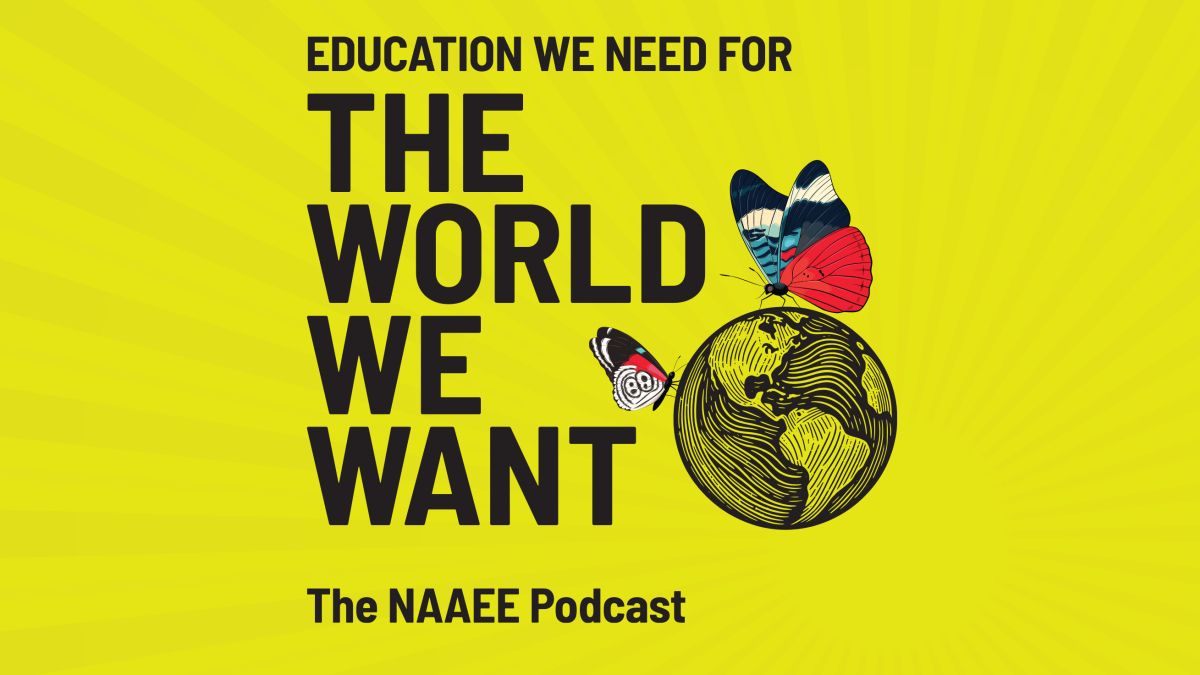
Imagine a world where communities thrive, curiosity sparks change, and hope fuels action. Welcome to The World We Want, the NAAEE podcast that's bringing a better future to life, one inspiring story at a time. Join us as we chat with people across continents and cultures who care about education and the environment—the trailblazers, visionary leaders, and everyday heroes making a difference.
Listen Now
Enjoyed This Episode?
Share your thoughts, takeaways, or resources you'd love to see featured by logging in or creating a free eePRO account.
